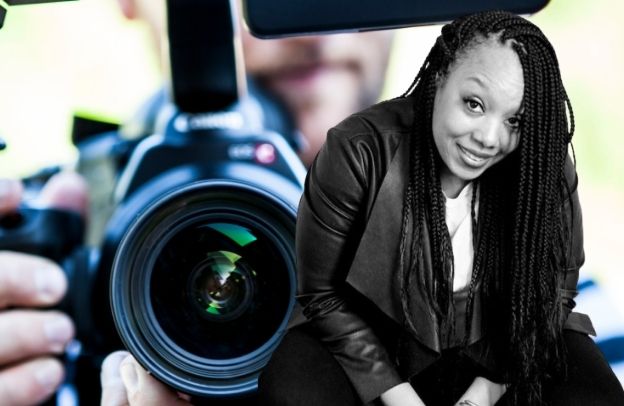Jay Pascua on Brand Storytelling And How Can It Be The Differentiator For Entrepreneurs

Do you want to learn about brand storytelling and how can it be a differentiator for entrepreneurs? Then keep reading. In today’s digital landscape, where consumers are overwhelmed by countless messages, advertisements, and content from brands across the places, one question stands at the heart of entrepreneurial success: How do you stand out? The answer, more often than not, lies in the art of storytelling. Does that sound like what you are interested in?
Want to learn more about storytelling? Start by downloading the first chapter of The Storytelling Mastery.
For creative entrepreneurs—particularly those from the African diaspora—brand storytelling isn’t just a marketing tool; it’s a lifeline. Your story has the power to shape perceptions, create emotional connections, and drive lasting loyalty from your audience.
In an era where authenticity is paramount, brand storytelling is the difference between being just another face in a crowded marketplace and becoming a beloved brand with a dedicated following.
At AClasses Academy, we emphasize this message across everything we do—whether it’s our LinkedIn storytelling series or other initiatives. Brand storytelling is a powerful differentiator for entrepreneurs, and it’s something you should always keep top of mind.
In the latest episode of the Obehi Podcast, Jay Pascua, an expert in branding and content creation, sat down with Obehi Ewanfoh to explore the concept of brand storytelling and how it can act as the ultimate differentiator for entrepreneurs.
Their conversation, rich with insights and actionable advice, is especially important for African diaspora entrepreneurs looking to build a brand identity that resonates with a global audience.
See also Building a Legacy – How African Diaspora Entrepreneurs are Making Their Mark
From Nigeria to Italy, to the global stage, storytelling is a tool you can harness to craft your success. Here’s why you need to master it.
The Digital Age: Noise and Opportunity
In the hyper-connected world we live in, consumers are constantly bombarded with advertisements, social media posts, and product promotions. For African diaspora entrepreneurs, this poses both a challenge and an opportunity.
According to the World Economic Forum, the African diaspora is expected to grow significantly in the coming years, with thousands of African immigrants arriving in Europe annually, and United States alone.
This rapid expansion creates a unique opportunity: as African diaspora entrepreneurs, you are in an ideal position to reach audiences that are eager for authentic cultural narratives and stories that resonate with their identity and experiences.
However, standing out amid this noise requires more than just great products or services. Consumers today crave a connection—a story.
They want to know who you are, what you stand for, and how your brand can enrich their lives. Without a compelling narrative, your brand risks getting lost in the clutter.
What is Brand Storytelling?
At its core, brand storytelling is about more than just describing the products or services you offer. It’s about connecting your audience to the soul of your business.
Jay Pascua defines brand storytelling as “elevating the story of your business from just services and products to establishing an emotional connection, a rapport with your audience, your customers, your client base.” It’s this emotional resonance that differentiates successful brands from those that fade into obscurity.
Consider this: when you hear the story of how a brand came to be—its struggles, triumphs, and the people behind it—you are not just hearing about a company; you are hearing about a journey. A shared experience.
See also Design Your Brand Storytelling Strategy and Craft Narratives That Resonate
When you tell your story, you open the door to a deeper connection with your customers. They don’t just see your brand as a faceless entity but as something real, something human, something they can relate to.
For entrepreneurs from the African diaspora, this human connection can be a powerful tool. Your story doesn’t have to be just about selling a product; it can also be about selling a dream vision of where your brand came from, where it’s going, and how it aligns with the values of your target audience.
This is what we truly stand by in AClasses Academy. Whether you are based in Lagos or London, your narrative has the potential to resonate with audiences who share your cultural background and values.
Why Brand Storytelling Is the Key to Standing Out
The digital marketplace is flooded. According to Statista, there are over 4.9 billion internet users worldwide, or about 53% of the global population as of 2021 and social media platforms host billions of daily interactions.
Within this noise, your brand must have something unique to offer—not just in terms of products or services, but in the stories you tell. If you fail to create an emotional connection with your audience, they will simply move on to the next brand that grabs their attention.
For example, in the competitive world of fashion, brands like African Fashion Week London don’t just sell clothing; they sell stories of African heritage, craftsmanship, and cultural pride. They connect their products to something bigger—a sense of belonging, identity, and global pride. This is a strategy that has worked across industries, whether it’s fashion, food, or tech.
In the case of tech entrepreneurs from the African diaspora, storytelling takes on a new form. Companies like Andela, a Nigerian tech startup that trains software developers and connects them with global companies, use their narrative to highlight the success stories of African developers.
These stories are about innovation, empowerment, and bridging the digital divide. By telling these stories, Andela not only differentiates itself but also elevates African talent in the global tech landscape.
Key Elements That Make Brand Storytelling Work
A great brand story is more than just a catchy phrase or tagline. It’s a comprehensive narrative that reflects the heart of your business. Here are some key elements that make brand storytelling work:
- Clarity and Consistency: Your story needs to be clear and consistent. What is the core message you want your audience to walk away with? Consistency across all platforms (website, social media, email marketing, etc.) helps reinforce your brand’s identity.
- Authenticity and Transparency: Today’s consumers can spot inauthenticity from a mile away. This is particularly true for creative entrepreneurs who are often seen as more personal and relatable brands. Your audience expects honesty and transparency. If your story is authentic, whether it’s about overcoming challenges, celebrating successes, or being vulnerable in your journey, your audience will feel it.
- Relatable Characters: Every story needs a protagonist. As an entrepreneur, you are that protagonist. Your personal journey, the obstacles you’ve overcome, the dreams you’re chasing, the values you uphold—should take center stage. This human element is what allows consumers to connect with your brand on a deeper level. As Jay Pascua puts it, “Brand storytelling is about the people behind the brand, not just the brand itself.”
- Conflict and Resolution: Great stories are built around conflict and resolution. What challenges did you face in getting your business off the ground? How did you overcome them? Sharing your struggles—not just your successes—adds depth to your story and makes it more relatable.
How to Engage Your Audience with Your Brand Story
As Jay Pascua discusses in the Obehi Podcast, the “rules of engagement” are key when it comes to brand storytelling. Engagement refers not just to telling your story but to allowing your audience to participate in it.
See also Defining Your Audience: How Purpose-Driven Entrepreneurs Identify Their Ideal Clients
In a world where digital conversations happen in real-time, you need to actively engage with your audience, listen to their feedback, and create content that resonates with their experiences.
For example, on social media platforms like Instagram and Twitter (now X), you can use polls, interactive posts, and behind-the-scenes content to invite your audience into your story.
Share not only your wins but also your lessons learned and your journey. Give your audience a chance to become part of your narrative, creating a sense of community around your brand.
How to Get Started with Brand Storytelling
According to Seth Godin “A brand is the set of expectations, memories, stories and relationships that, taken together, account for a consumer’s decision to choose one product or service over another.”
If you are ready to use storytelling as a tool to differentiate your brand, here’s how to get started:
- Discover Your Story: Start by identifying what makes you and your business unique. What experiences, values, and challenges have shaped your journey? Your brand’s story should reflect the essence of who you are.
- Craft Your Narrative: Once you’ve identified the key elements of your story, it’s time to structure it. Begin with the problem your business is solving, introduce the hero (yourself or your team), and highlight the resolution (how your product or service improves the lives of your customers).
- Choose the Right Medium: Storytelling can take many forms. In today’s world, it’s not enough to rely on written content alone. Visual storytelling, such as videos, infographics, and Instagram stories, can be just as powerful. Podcasts, like the Obehi Podcast, are also an excellent way to share longer, more in-depth stories with your audience.
- Consistency is Key: Tell your story consistently across all platforms. Whether it’s your website, social media accounts, or email newsletters, your story should remain coherent and aligned with your core values.
The Future of Brand Storytelling
The future of brand storytelling will undoubtedly be shaped by new technologies. With the rise of artificial intelligence, virtual reality, and immersive media, entrepreneurs from the African diaspora have an opportunity to tell their stories in innovative ways.
Virtual events, interactive digital campaigns, and AI-powered personalization could be the next frontier for brand storytelling, allowing businesses to create deeply engaging experiences for their customers.
Furthermore, as global conversations around social justice, sustainability, and equality continue to evolve, consumers are increasingly drawn to brands that align with their values.
For African diaspora entrepreneurs, this means an opportunity to tell stories that reflect not only your business goals but also your commitment to positive social impact.
Conclusion: Your Story is Your Brand’s Superpower
The power of storytelling is undeniable. For African diaspora entrepreneurs, your story is not just a way to sell a product or service—it’s a way to connect with your audience on a deep, emotional level.
By harnessing the power of narrative, you can build a brand that stands out in a crowded marketplace, fosters customer loyalty, and ultimately drives business success. So, start telling your story today. Your audience is waiting to hear it.
Want to learn more about storytelling? Start by downloading the first chapter of The Storytelling Mastery.





